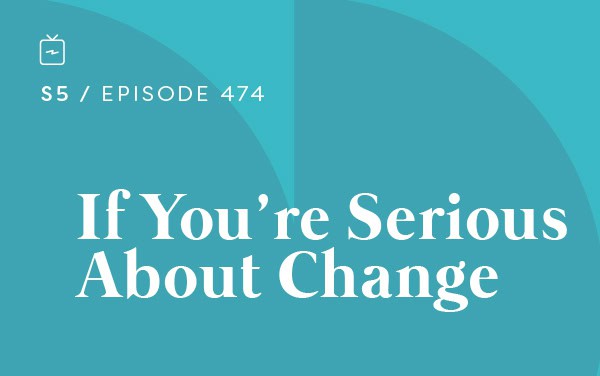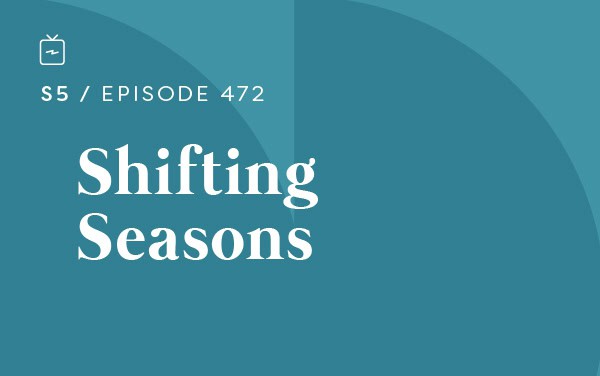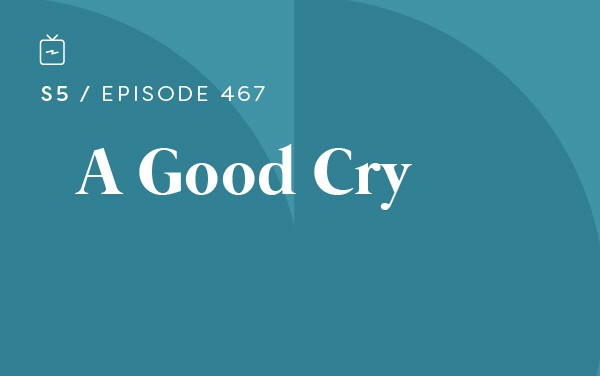
by Kris Oyen | Mar 18, 2024 | Podcast
Podcast: Play in new window | Download
Subscribe to the Recovery Elevator Podcast Apple Podcasts | | More
Episode 474 – If You’re Serious About Change
Today we have Nick. He is 36 years old from Grand Rapids, MI. He took his last drink on January 19th, 2021.
In two weeks on April 1st, registration opens for our annual retreat in the beautiful Rocky Mountains located outside of Bozeman, MT. This retreat is from Wednesday August 14th through Sunday August 18th, and it is going to be a blast! Click here for the full itinerary and to get pricing info.
Better Help: www.betterhelp.com/elevator – 10% off your first month. #sponsored
[02:41] Thoughts from Paul:
Paul likes Instagram because it’s a platform for artists, for teachers, for musicians, for dancers, and more to showcase their talents.
Paul shares with us audio from a video he found while on Instagram. Here’s the scene: It’s a busy city street at nightfall, when a gentlemen comes to a skidding halt on his electric motorbike wearing a microwave as a helmet. When his motorbike comes to a stop, he pushes the open microwave door button, and begins to speak. Check out the video here.
If you are serious about change, there will be shitty times, but trust the process because in the long run you’re going to be a better person.
The biggest gift Paul gets while doing Recovery Elevator podcast is witnessing the change made daily. This change, added up over many days, months and even years, results in quite the transformation.
Check out our sponsor Go Brewing. Use the code ELEVATOR for 15% off.
[08:40] Kris introduces Nick:
Nick is a real estate agent in Grand Rapids, MI. He enjoys outdoor activities in his free time. He has a boyfriend and a dog that he takes everywhere with him.
Nick says he started drinking in high school when he and his friends would pillage the parents’ liquor cabinets. He enjoyed alcohol because it freed his inhibitions. As someone who was coming to terms with being gay in a conservative city and kept it a secret for a while. The internal struggle drove Nick to enjoy checking out and alcohol was the way he chose to do that.
In his late teens, Nick started working in the food and beverage industry. He felt very welcome at the gay bars he worked in but didn’t have good role models. He knew in his early twenties that his drinking needed to eventually be addressed but wasn’t ready at that time. Nick says he was very functional but drank daily. He feels he was just surviving at that point in time.
Nick started thinking about quitting when he was in his early thirties. He says he was stuck there for a while trying to determine if he really had a problem. He started utilizing his ADHD medication to help him be able to drink more. The planning and rituals became exhausting. Drinking progressed beyond “only after the responsibilities are done” to finding reasons to start earlier.
Nick’s first stint at sobriety was in 2018 when he joined a local IOP and AA and was able to remain sober for about four months while learning a lot about addiction. His partner at the time drank heavily and eventually Nick gave up his sobriety. His rock bottom came when he was hiking with his dog hungover and realized how miserable he was and questioned if this was how he wanted to live his life. The next day he went back to AA.
After working the steps with a sponsor, Nick felt empowered. He says he went on a quest for sobriety and tried out other modalities. When a sober travel trip to Costa Rica with RE coincided with his one-year milestone, he decided to go and feels he gained a lot from that trip.
Within the past year Nick has changed careers and feels the best he has ever felt. Going forward, he plans to keep growing in his career and nurturing his sobriety.
Nick’s favorite resource in recovery: Recovery Elevator podcast
Nick’s parting piece of guidance: the harder you fight addiction, the more entangled you are so just let go.
Café RE – promo code OPPORTUNITY waives set up fee.
Instagram
Recovery Elevator YouTube
Sobriety Tracker iTunes
Recovery Elevator
Go big, because eventually we all go home.
I love you guys.

by Kris Oyen | Mar 11, 2024 | Podcast
Podcast: Play in new window | Download
Subscribe to the Recovery Elevator Podcast Apple Podcasts | | More
Episode 473 – An Easier Softer Way
Today we have Lee. He is 43 and lives in the United Kingdom. He took his last drink on August 17th, 2020.
If you have found the Recovery Elevator podcast helpful to you, please take a moment to leave a review in either iTunes or Spotify. This helps you shred the shame and helps our show reach more listeners.
Café RE is Recovery Elevator’s alcohol-free community. We are 1,400 strong and have one goal in mind which is to leave the booze behind. We are connecting over the pain points of alcohol and collectively creating the momentum needed to find wholeness without alcohol. If you would like to join, use the promo code OPPORTUNITY to waive the set-up fee.
[03:41] Thoughts from Paul:
There are a million reasons why people drink. One reason is relief. Now thank you alcohol for providing myself relief when I needed it most. Then there came a time, and it wasn’t overnight when the source of relief became less effective. Alcohol then provided no relief at all. Then it became a source of discomfort itself.
Now the most excruciating part of a drinking problem is when we reach for alcohol to seek harmony, but it only brings pain. Now the conscious mind knows the outcome, it knows it won’t work. But in the unconscious, it is still inscribed like a commandment on a clay tablet that alcohol will deliver the goods.
So, listeners, the seed I want to plant with you today, that even though we live in a world full of messaging and imagery saying that alcohol will enhance your life, in reality, the truth is an alcohol-free life is the easier, softer way.
Sober Link – receive $50 off of a device.
[08:33] Paul introduces Lee:
Lee is from Birmingham, UK where he lives with his wife and two kids. He works for a paint manufacturer and for fun he enjoys exercise.
Lee’s first taste of alcohol was when he was 8 and he thought it was terrible. Around age 14 he attended a party where there was alcohol, and he enjoyed the buzz he got from drinking until the next morning when he felt hungover. It was a few years later before he started drinking regularly. Lee utilized alcohol to combat insecurities and be more social.
People told Lee that after he was married and had kids that he would settle down, but Lee says his drinking got worse. He says he selfishly thought about how he could go home and drink in the house alone while his wife may be staying overnight after the birth of their second child. Even after wrecking his car while drunk, Lee did not see that he had a problem. Instead of going to the hospital, he left for the shop to get more alcohol.
The drinking started putting a strain on his relationship with his wife. The cycle of arguments and Lee leaving the home for a few days only to return asking for forgiveness went on for about six months. After a particularly bad event where Lee couldn’t remember the events of the days he was gone from home, he had an anxiety attack. Lee finally admitted to himself that he had a problem and reached out to AA.
Lee started attending AA meetings via Zoom and was still drinking and just listening. He started to see what everyone had, and they seemed happy. At that point he decided to give quitting a try.
Lee says the first few months were horrific. He couldn’t concentrate and was very irritable. He kept going to meetings and listening to everyone tell him it was going to get better but struggled to see it. The next several months found him sleeping better and feeling 95-96% less anxiety. After 18 months to 2 years, he has been able to forgive himself for things I did when he was drinking. He feels he is no longer to try being sober, instead he is living a sober life.
Lee’s best sober moment: getting his family back and being more present with them.
Lee’s parting piece of guidance: take it one day at a time. If you can’t do that, do a half day, do an hour, you’ll get there eventually.
Instagram
Recovery Elevator YouTube
Sobriety Tracker iTunes
Recovery Elevator
Go big, because eventually we all go home.
I love you guys.

by Kris Oyen | Mar 4, 2024 | Podcast
Podcast: Play in new window | Download
Subscribe to the Recovery Elevator Podcast Apple Podcasts | | More
Episode 472 – Shifting Seasons
Today we have Erin. She is 45 and lives outside of Boston. She took her last drink on December 26th, 2021.
Better Help: www.betterhelp.com/elevator – 10% off your first month. #sponsored
[01:52] Thoughts from Kris:
The transition out of winter is one of Kris’ favorites. He sees it as an awakening. He took the cue from Mother Nature and paused this season. No big decisions or changes. Just time to reflect on things. Now that nature is starting to wake back up, he feels it’s time for him to do the same.
Kris reflects on his first spring in recovery and how the nice weather worried him. He started connecting with multiple recovery groups, discovering his triggers, digging into his whys and was able to feel connected to something bigger than himself. Being a part of a recovery community is cool that way… we see the reward in our own growth, but we’re contributing to the growth of the whole as well.
Wherever you are this spring, that’s right where you’re supposed to be. Where you go from here is up to you. What tools do you have that you’re using? What tools aren’t you using? Is this a season to pick something up, or one to let some things go? Only you can answer these questions for yourself.
Check out our sponsor Go Brewing. Use the code ELEVATOR for 15% off.
[09:08] Kris introduces Erin:
Erin is 45 and lives about 13 miles outside of Boston. She works as a senior paralegal for a large corporation and works for Rover on the side where she takes care of other people’s animals.
Erin says her exposure to alcohol was limited to family drinking on holidays or special occasions, but she never tried drinking until she went away to college. What started as curiosity, ended up as binge drinking and partying multiple days of the week when she joined a sorority.
After getting married, Erin says the drinking was more casual on the weekends or when out and about. After a tough breakup in her early thirties, Erin found herself living alone, working two jobs, and going back to finish college.
During her second marriage, Erin says she and her husband drank a lot socially. Her husband was the life of the party when they were out, but home there was a very different scene that found Erin drinking in isolation to deal with it. She didn’t feel she had a way out as she was financially dependent on her husband at the time.
Eventually Erin was able to leave the relationship and started over single in a new town. She surrounded herself with people that drank like her, but deep down she knew she didn’t drink like everyone else. Alcohol became her best friend and her drinking got worse during the pandemic as she was isolated and now didn’t have the safety of working in the office.
Returning to the office in early 2021 was helpful to her mental health, but she still knew she was drinking too much on the evenings and weekends.
A cousin was sharing how great they felt at 60 days of sobriety which made her become sober curious. Planning to do Dry January with a friend, Erin found herself starting early after getting sick with COVID.
In the early days, Erin continued to go to the bar where her friends were, but she recognized that wasn’t good for her. Instead, she started walking more, listening to podcasts, and going to therapy. She was beginning to gain confidence and faith in herself.
Erin’s favorite resource in recovery: RE podcast, Wayne Dyer
Erin’s plan moving forward: continue therapy and connecting with others.
Kris wants to hear from you, listeners! What are you looking forward to this spring? Do you feel something different this year compared to years past?
Email kris@recoveryelevator.com and let him know what this spring has in store for your or what you hope to see from it.
Café RE – promo code OPPORTUNITY waives set up fee.
Instagram
Recovery Elevator YouTube
Sobriety Tracker iTunes
Recovery Elevator
We might as well go big RE, because eventually we all go home.
I love you guys.

by Kris Oyen | Feb 5, 2024 | Podcast
Podcast: Play in new window | Download
Subscribe to the Recovery Elevator Podcast Apple Podcasts | | More
Episode 468 – A Day in the Life
Today we have Amber. She is 41 years old and lives in San Luis Obispo. She took her last drink on May 26th, 2020.
“First it is an intention; then a behavior; then a practice; then a habit; then second nature; then it is simply who you are”.
Better Help: www.betterhelp.com/elevator – 10% off your first month. #sponsored
[03:04] Thoughts from Paul:
Paul shares with us what a typical day in sobriety looks like for him.
He starts his days with hydration, breathwork and/or stretching, reading and coffee. He takes time to connect with the universe and asks for guidance throughout the day.
Paul likes to reflect on what he is thankful for either in a journal or he sits in a comfortable location outside facing the sun while he closes his eyes and gives thanks. Even on shit days, he makes a point to thank the universe.
Reminding himself that the present moment is all that matters, spending time in nature, doing things that he enjoys, connecting with fellow sober peeps, and being creative are also very important to Paul.
Go Brewing use the code elevator at checkout for 15% off.
[12:13] Kris introduces Amber:
Amber is 41 years old; she has two boys and a partner in crime. She works as a 2nd grade teacher, in addition to being a running and sobriety coach. They live in San Luis Obispo, CA and enjoys hiking, mountain biking, running, and swimming.
Growing up, Amber says she was always shy and preferred to be in the background. She was introduced to alcohol in high school and discovered it helped her feel confident and have fun. She didn’t really enjoy the taste, but she loved the way it made her feel and she and her friends drank every weekend.
After going to college, Amber says her drinking only increased. She was recruited to be on the softball team with a full scholarship. The practice and academic schedule was challenging and her drinking increased from every weekend to nearly every day. She gained weight, she wasn’t studying, and her grades were suffering. Her performance on the team found her on the bench often and eventually she was cut from the team and lost everything.
Amber moved to San Diego and finished college there while working in restaurants. She says her drinking increased even more and she got a DUI a few years later. Shortly after that experience, Amber decided to join a teaching career and the stress of it found her relying on alcohol at the end of the day.
Amber says a turning point came after getting married and having two children back-to-back. She had many roles to fill but was still drinking two bottles of wine a night. Finally figuring out that she wanted more for her life, Amber filed for divorce and started taking better care of herself. She started running as an outlet for her emotions and found herself meditating, which she feels helped her make decisions. She looked at her sobriety as a fresh start.
Initially Amber was quiet about her recovery and felt she could figure it out on her own. Once she realized that wasn’t working, she found Celebrate Recovery, got a sponsor, and started doing the work. Once she started meeting more and more people in recovery she stopped feeling alone.
Amber left her teaching job and started her own business as a sober running coach. She started a sober running group Recovery Road Runners and they do a lot of fun things together and help other people stay sober.
Amber encourages people to find physical activities that they enjoy doing, maybe things they did when they were kids. She also suggests vision boards to think about where you want to be in the future and goals you may have.
Amber’s biggest fear when she quit drinking: “That I would never have any fun again, total lie. I have way more fun now.”
Café RE – use the code OPPORTUNITY to waive the setup fee.
Instagram
Recovery Elevator YouTube
Sobriety Tracker iTunes
Recovery Elevator
We’re the only ones that can do this, but we don’t have to do it alone.
I love you guys.

by Kris Oyen | Jan 29, 2024 | Podcast
Podcast: Play in new window | Download
Subscribe to the Recovery Elevator Podcast Apple Podcasts | | More
Episode 467 – A Good Cry
Today we have Andrea. She is 47 years old and lives in Phoenix, AZ. She took her last drink on November 9th, 2021.
Better Help: www.betterhelp.com/elevator – 10% off your first month. #sponsored
[02:12] Thoughts from Paul:
Paul shares a quote with us that says, “decide what life you want to live and say no to everything else”. This same quote can be applied to your thoughts.
What comes to mind after reading this quote is the word “purge”. Saying no and letting go of things that don’t fit the life we want to live isn’t easy, but it is healthy and so is crying.
Emotional tears have many health benefits. They contain stress hormones and other toxins. Researchers have theorized that crying flushes these toxins out of your system.
A good cry also activates the parasympathetic nervous system which sends signals of calm and restoration to the body. In addition to this, crying dulls pain and releases oxytocin and endorphins. It is a way for the body to find a new emotional balance. A much better way than using alcohol.
If you’re finding emotions hard to deal with in sobriety then give the body permission to purge them out in the form of tears. Go ahead and lean into the millions of years of universal intelligence the body possesses and have a good cry.
Café RE – use the code OPPORTUNITY to waive the setup fee.
[09:28] Paul introduces Andrea:
Andrea is 47 years old and lives near Phoenix. She has four children, two grandchildren and a Great Pyrenees. She works with people with substance abuse disorders and is working on a master’s in social work. For fun she enjoys jogging, hiking, DIY projects and documentaries.
Andrea and her family moved around a lot when she was going up which made it hard for her to keep friends. She had her first drink shortly after she discovered that her father was cheating on her mother. She felt the calming effects the first time and drank every change she could get during her teens.
Andrea started bartending when she was 19. This found her drinking a lot after work which was creating some issues in her marriage. She was able to abstain from alcohol during all of her pregnancies but would drink as soon as she could after.
The alcohol was creating issues in the marriage and when Andrea was 22, she went to rehab but didn’t stay quit after leaving. A few years later she lost her mother to cancer and Andrea says that’s the first time she drank to numb pain rather than just a socialization tool.
The first consequence Andrea had was losing her nursing license after an arrest. When they were about to extend her probationary period where she could not drink without hiding it, she decided she didn’t want to do it and turned in her license. Her heavy drinking would continue throughout her 20’s and 30’s.
After her divorce when she was 41, Andrea did start exploring whether or not she had a drinking problem. She was beginning to see the consequences to her health and was realizing she didn’t want this to be her legacy. She was gradually able to stack days together and eventually reached 90 days where she kept on going. The first year found Andrea continuing to read quit lit, listen to podcasts and attend a few AA meetings.
Her decision to work on her relationships after year one was cut short when she lost a daughter to a drunk driving accident. Instantly she reached out to some sober friends to help her keep from drinking. Andrea feels that her sobriety has been a gift throughout this and helped her be there for her other children and grandchildren.
Andrea has been attending AA, going to school, and making new friends in social situations she would have avoided in the past. Giving back is important to Andrea as she pursues her master’s in social work.
Andrea’s favorite sobriety resources: podcasts, quit lit, The Phoenix
Andrea’s parting piece of guidance: the sooner you ditch the booze, the sooner you can start living.
Instagram
Recovery Elevator YouTube
Sobriety Tracker iTunes
Recovery Elevator
Go big, because eventually we’ll all go home.
I love you guys.







